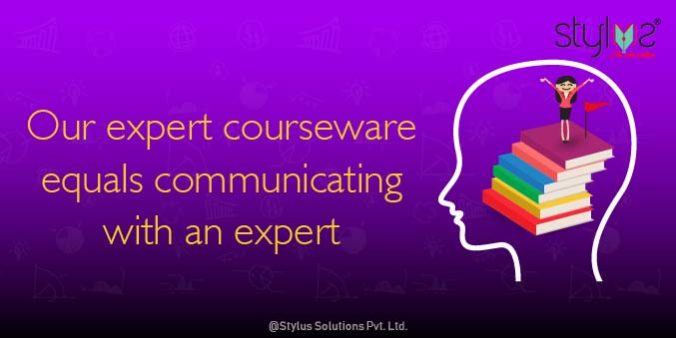What are the basic things you look to accomplish through a course, be it online or offline? To further expand your current knowledge, right? Similarly, courseware development in India and around the world also primarily focuses on two basic aspects of training—to uncover the existing skills learners possess and to fill in any knowledge gaps. A courseware must present quality content that complements the objectives of the said training program. This is where a Subject Matter Expert, or SME, comes into picture.
An SME is someone who possesses an in-depth knowledge of the given subject matter. Such level of understanding and knowledge is generally obtained from higher education in a specialised field. Thus, an SME is essential in order to generate a high-quality courseware. However, as often seen in k12 course development, the actual involvement of a SME may vary based on the scope of the training program. An SME may be responsible for most of the training development or is simply required to offer technical expertise. Some of the responsibilities of an SME are explained as follows.
To organise the content
One of the important duties of an SME is to maintain the focus of the courseware towards achieving the pre-defined goal of the program. They can accomplish this objective by:
- Identifying the relevancy of available information to provide only the parts indispensable to the learners
- Delivering a rough draft that caters to the leaning objectives of the course
- Providing the relevant bibliographic information, being privy to the copyright permissions needed for the learning resources involved
To clarify doubts
An SME is expected to present an extensive knowledge of the given topic and to extract the most relevant information related to the course. After identifying the target audience, they must collaborate with the course designers to develop the most accurate content. They must provide rough notes and content outlines that will be helpful in creating high-quality presentations and video scripts. They must also verify the most technical aspects of the content.
To redesign the existing content
Based on the current e-learning needs of the target audience, SMEs are expected to re-design the existing content to present it more effectively. This is accomplished by more refined use of learning methods, such as interactivities, images, graphics, animations, etc. SMEs are often asked to come up with new ideas to impart learning through consistent and organised data.
As seen in many cases for courseware development in India, SMEs are tasked with creating an entire set of courseware from scratch. In such cases, they must implement a proper understanding of the subject matter, especially in absence of any clear input from the client. This includes easy-to-understand explanations for even the most complex ideas. SMEs are also responsible for defining the course structure in relation to the duration of the course. Additionally, they must design the assessment portion of a course that is best suited to each learning objective.
To review the final product
SMEs can also be called for as content experts to validate the final course product. They must ensure that the course is designed to achieve its primary area of focus. An SME should make sure that each portion of a course remains faithful to the learning objectives decided for the learners. They are also responsible for safeguarding the technical accuracy of the content, as any type of content must be validated for any inaccurate interpretation of the original ideas.
You can connect with Stylus Solutions and its team of some of the best SMEs, who will ensure that your courseware is effectively achieving its course goals.
